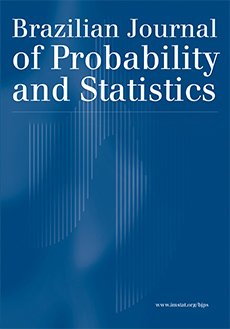Abstract
The joint modeling of mean and dispersion has been used to model many problems in statistics, especially in industry, where not only the mean of response, but also the dispersion depends on the covariates. In scientific research, one of the crucial points is the experimental design, which when properly implemented, will create a reliable structure, essential to improve the statistical inference and for the development of the next phases of the experimental process. The theory of optimal design of experiments is a powerful and flexible approach to generate efficient experimental designs. In the context of optimal designs, the General Equivalence Theorem plays a fundamental role, because it permits to check if a design found is optimal. In this article, we investigated the validity of the General Equivalence Theorem for obtaining Bayesian $D$ and $D_{S}$ optimal designs in joint generalized linear models for the mean and dispersion.
Citation
Edmilson Rodrigues Pinto. Antônio Ponce de Leon. "On Bayesian $D$-optimal design criteria and the General Equivalence Theorem in joint generalized linear models for the mean and dispersion." Braz. J. Probab. Stat. 28 (4) 483 - 491, November 2014. https://doi.org/10.1214/13-BJPS220
Information





